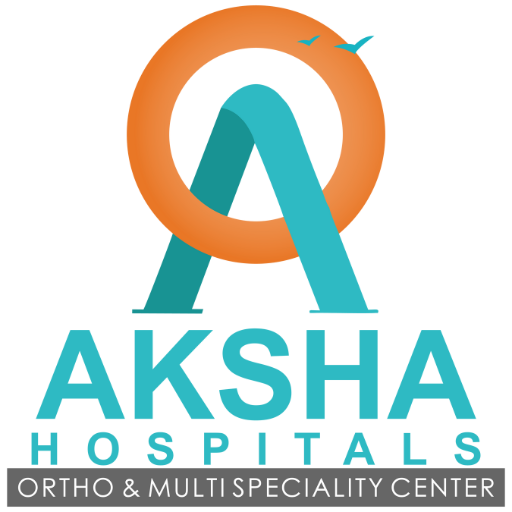
Type and hit enter

Orthopedics is a specialized medical field focused on diagnosing, treating, and preventing skeletal abnormalities, including issues with bones, joints, muscles, ligaments, tendons, nerves, and skin.

Practitioners in this field, known as orthopedists, often work within comprehensive orthopaedic care groups.
In the diagnostic process, orthopedists employ various methods to understand and identify a patient’s ailment:
Symptom Inquiry:
Orthopedists begin by inquiring about the individual’s symptoms, gaining insights into the nature and extent of their condition.
Medical Records Examination:
The orthopedists thoroughly examine the patient’s medical records, delving into their medical history and overall health for a comprehensive understanding.
Physical Examination:
A detailed physical examination is conducted to assess the patient’s musculoskeletal system, aiding in the identification of potential issues.
X-ray Analysis:
Examination of any X-rays taken before the appointment is performed to visualize the affected areas and gain further insights into the patient’s condition.
For a more comprehensive diagnosis, orthopedists may order additional diagnostic tests, including:
MRI Examination: Utilizing magnetic resonance imaging for detailed internal imaging.
X-ray of the Bones: Focusing on bone structure and potential abnormalities.
Nerve Conduction Study with Ultrasound: Evaluating nerve function and blood flow through ultrasound technology.
Blood Testing: Conducting blood tests to gather relevant health information.
Orthopedic surgeons may perform various surgical procedures as part of their role, including:
Total Joint Replacement (Arthroplasty):
This surgical procedure involves replacing a damaged joint with a prosthesis made of metal and plastic. Commonly performed for joint issues, especially in elective cases.
Arthroscopic Surgery:
A minimally invasive method that uses an arthroscope (a thin camera) to diagnose and treat joint issues, frequently in the knee or shoulder. It involves small incisions and is often employed for conditions like meniscus tears, ACL tears, and rotator cuff tears.
Bone Repair Surgery:
Orthopedic surgeons may operate to repair more severely damaged bones, utilizing various implants such as rods, plates, screws, and wires for support.
Bone Grafting:
This procedure involves adding new bone to an existing one, contributing to the regeneration and strengthening of bone structures.
These surgical interventions highlight the orthopedists’ commitment to providing effective and personalized treatments for their patients.
Our orthopedic consultants are renowned experts in their respective fields, boasting extensive experience and knowledge. Specializing in areas like knee, hip, and joint surgery, they offer comprehensive treatment and care.
Our department is supported by a diverse team of professionals, including arthroscopists, sports medicine specialists, orthopedic oncologists, trauma surgeons, pediatric orthopedic surgeons, spine surgeons, microvascular surgeons, physical medicine experts, orthopedic knee surgeons, bone specialists, physical rehabilitation specialists, patient counselors, and nurses. This multidisciplinary team is well-equipped to handle any orthopedic emergency or challenging condition.
At our facility, we prioritize staying at the forefront of technology and therapies. We are committed to delivering some of the most effective and painless orthopedic treatments available. Our doors are open 24/7, ensuring that expert doctors are always available to provide care.
Our orthopedists, trained at prestigious institutions worldwide, bring cutting-edge procedures to our facilities. This includes state-of-the-art equipment, advanced operating rooms, recovery spaces, and sophisticated physical therapy offerings.
Within our dedicated Orthopedic surgery complexes, we have implemented laminar flow and advanced technologies such as image intensifiers, operating microscopes, computer navigation systems, and top-of-the-line arthroscopy systems. These elements collectively contribute to a high-quality and advanced orthopedic care environment for our patients.
General Orthopedic Treatments:
Pinched Nerves:
Treatment for pinched nerves varies based on severity and cause. Simple measures like resting the affected area and avoiding aggravating activities may suffice. If symptoms persist or pain is severe, targeted treatments to reduce swelling around the nerve may be recommended.
Herniated Discs:
Also known as a slipped or ruptured disc, a herniated disc can cause discomfort, numbness, or weakness in the arms or legs. Orthopedic specialists focus on personalized treatment plans to alleviate pain and address specific symptoms. Tailoring the approach to the cause and degree of pain is crucial for effective management.
Broken Shoulders:
Evaluation and treatment for broken shoulders are personalized, with orthopedic surgeons specializing in shoulder fractures. Surgical intervention may be necessary to stabilize the shoulder. The physicians at Orthopedics specialize in providing the right diagnosis and treatment plan for broken shoulders.
Foot and Ankle Injuries:
Orthopedic foot and ankle surgeons offer comprehensive medical and surgical treatments for a broad range of foot and ankle injuries. Whether it’s a sprain, fracture, or other conditions, the specialists in Orthopedics provide tailored therapy to promote recovery and restore function.
In each of these orthopedic cases, individualized evaluation and diagnosis are crucial for determining the most effective treatment plan. The expert physicians at Orthopedics aim to alleviate pain and improve overall musculoskeletal health, ensuring patients receive the care that is best suited to their specific conditions and needs.

Feel free to contact us! Our expert team will be happy to assist and guide you. We are here to answer your questions and offer solutions that fit your needs.
1-100/29/9/4 and 4A Gopanapally,
Serilingampalle (M), Telangana 500046
Lingampally Branch:
H.No:2-38/A/15, Taranagar, Lingampalli, K.V, Serilingampalle (M), Hyderabad, Telangana 500019
support@akshahospitals.com
akshahospitals@gmail.com
+91 7402549999
+91 7402679999
© Copyright 2026. Aksha Hospitals. All Rights Reserved. | Designed by hiremystudios Australia.
Our healthcare professionals will help you determine the most convenient time and schedule an appointment that suits your needs.
Adding {{itemName}} to cart
Added {{itemName}} to cart